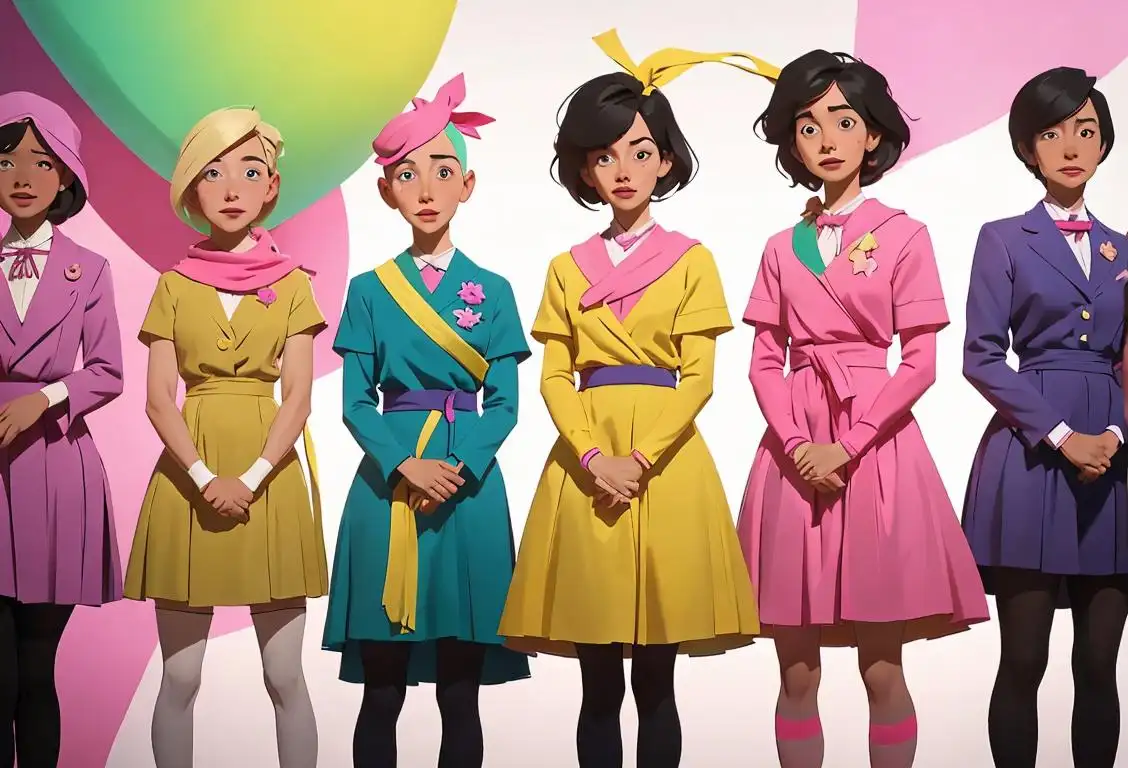National Mom And Pop Business Owners Day

National mom and pop business owners Day, Hooray! It's the day we celebrate the backbone of American economy – your friendly neighborhood store right next door. You know, the one that always smells like fresh bread and kind memories? If you've ever felt that irresistible charm as you stepped into a local boutique or family-owned restaurant, you've felt the magic that makes March 29th a day to adore!
When is Mom And Pop Business Owners Day?
It's national mom and pop business owners day on the 29th March.
Why Celebrate?
These family-run businesses are not your average Joe enterprises. They serve as lifelines to our communities, providing products and services with intimacy and personalized attention that often lacks in the mega-retail world.
History Of The day
This day finds its roots on March 29, 2017, when we saw 2991 mentions of National Mom and Pop Business Owners Day online. Since then, it is gaining popularity each year as a day to support local businesses and acknowledge the hard work and dedication of their owners.
How To Celebrate?
A simple visit to your favorite local shop, or ordering take-out from your beloved family-run restaurant is the perfect way to make their day. With each purchase, you're cementing a bond of community spirit and contributing to local economy.
The other side of the penny
Though running a small business has its perks, it's not always sunshine and rainbows. It is a unique blend of tireless nights, endless dedication, and an unwavering belief to carry on. So, your support on this day (and beyond) can make a world of difference to them.
History behind the term 'Mom And Pop Business Owners'
1920
Rise of the Small Business
In the 1920s, a shift in the economic landscape occurred as large corporations gained dominance in the United States. However, amidst this industrial revolution, a new type of business began to emerge - small family-owned enterprises. These businesses were typically run by a married couple, referred to as 'mom and pop,' who worked tirelessly to provide for their families and contribute to the local community. These small businesses offered a personal touch and a sense of familiarity that customers appreciated.
1930
Surviving the Great Depression
During the Great Depression, mom and pop businesses faced immense financial hardships. Despite the challenging economic conditions, these resilient entrepreneurs found ways to adapt and survive. In order to attract customers and compete with larger stores, they often offered specialized goods or services, created unique marketing strategies, and emphasized personalized customer care. This dedication and ingenuity allowed many mom and pop businesses to endure the economic downturn and retain their loyal community base.
1950
Post-War Prosperity
With the end of World War II, a wave of economic prosperity swept through the United States. The 1950s marked a period of significant growth for mom and pop businesses. As more families settled in suburban areas, these local stores played a vital role in providing essential goods and services to the expanding communities. Mom and pop businesses were seen as pillars of the neighborhood, fostering connections and creating a sense of community pride.
1980
Challenges from Chain Stores
In the 1980s, mom and pop businesses faced mounting competition from large chain stores and franchises that were rapidly expanding across the country. These corporate giants offered convenience, lower prices, and a wider range of products, posing a significant challenge to the smaller, independent businesses. Many mom and pop shops had to adapt their strategies to remain relevant, often specializing in niche markets or focusing on providing personalized customer service and a unique shopping experience.
Present
Revival and Appreciation
In recent years, there has been a growing revival of appreciation for mom and pop businesses. Consumers are recognizing the value of supporting local enterprises and the positive impact they have on their communities. These small businesses often incorporate sustainable practices, source products locally, and contribute to the local economy by employing community members. Additionally, the personalized service and the unique offerings of mom and pop stores have become increasingly sought after in an era dominated by mass production and standardization.
Did you know?
Did you know, According to the U.S. Small Business Administration, there are more than 27 million small businesses in the United States? That’s a whole lot of mom-n-pops!Tagged
awareness food fun finance rememberance love propertyFirst identified
29th March 2015Most mentioned on
29th March 2017Total mentions
2991Other days
Mom And Pop Business Owners Day
Cancer Awareness Day
Happiness Day
Caregivers Day
Action Day
One Day
Family Day
Believe Day
Opposite Day
Chocolate Mint Day








